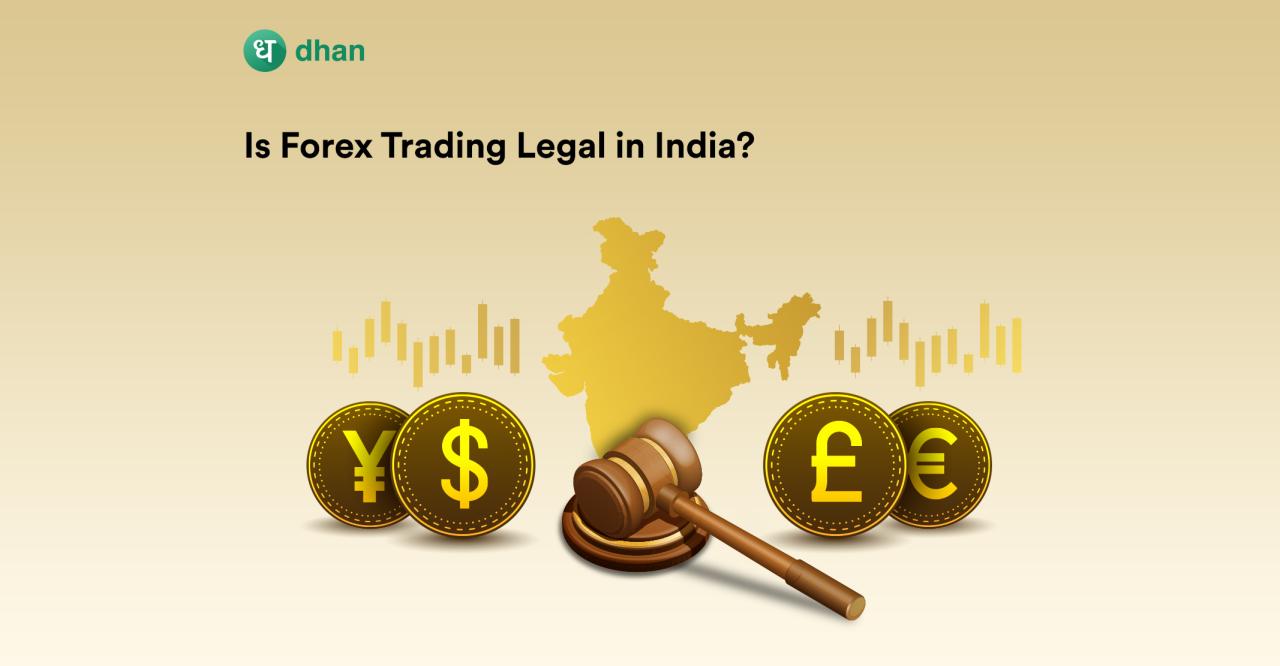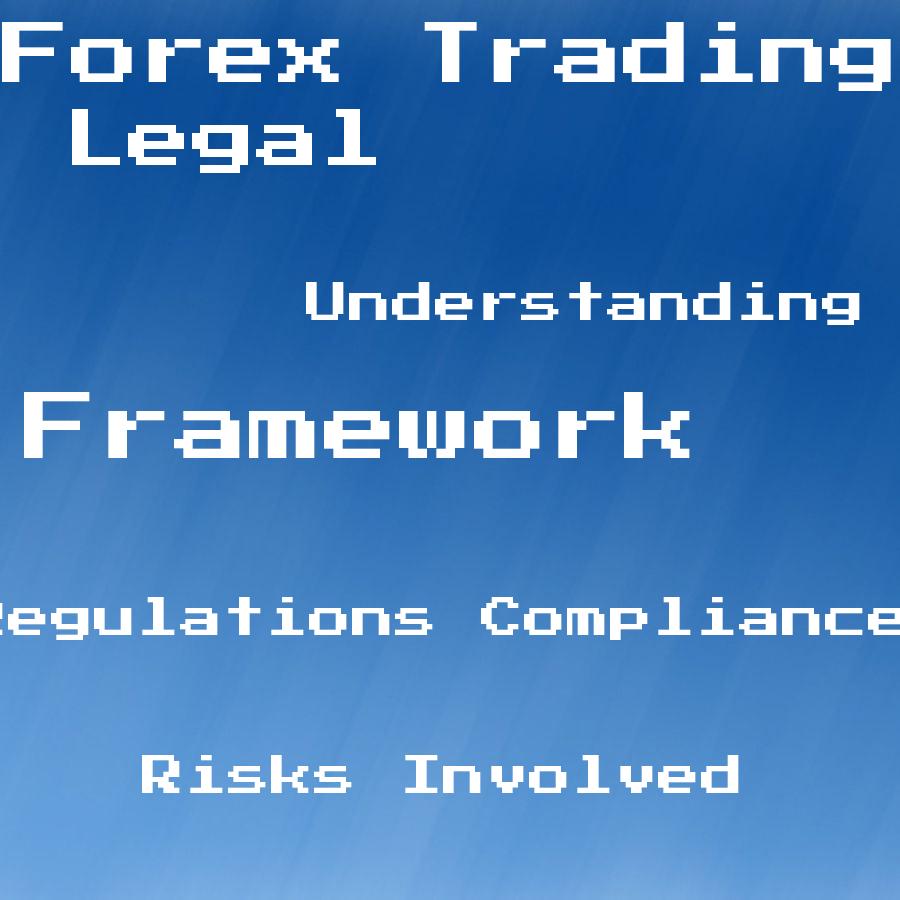
Is forex trading legal? The answer is a resounding yes, but with caveats. The global forex market is a complex and highly regulated landscape, with different jurisdictions having their own rules and regulations governing this form of trading. From the US and UK to the EU and Asia, forex trading is subject to various legal frameworks and oversight by financial authorities.
This article will delve into the intricacies of forex trading legality, exploring the regulatory landscape, licensing requirements, risks, and legal considerations. We will also discuss best practices for ensuring legal compliance in forex trading, as well as the potential tax implications. Whether you’re a seasoned trader or a curious newcomer, understanding the legal aspects of forex trading is crucial for navigating this dynamic market responsibly.
Legality of Forex Trading
Forex trading, the exchange of currencies, is a vast and dynamic market that attracts individuals and institutions globally. However, the legality of forex trading can vary depending on the jurisdiction.
Regulatory Landscape of Forex Trading
Understanding the regulatory landscape is crucial for anyone considering engaging in forex trading. It helps ensure a safe and transparent trading environment. The regulatory frameworks governing forex trading are diverse, with different countries and regions implementing unique rules and oversight.
Global Regulatory Framework
Several international organizations play a significant role in shaping the global forex regulatory landscape. The International Organization of Securities Commissions (IOSCO) is a prominent example, setting standards and promoting cooperation among securities regulators worldwide. The Financial Stability Board (FSB) focuses on identifying and addressing systemic risks in the financial system, including those related to forex trading.
United States
The United States has a robust regulatory framework for forex trading, with the Commodity Futures Trading Commission (CFTC) and the National Futures Association (NFA) overseeing the market. The CFTC, established in 1974, is an independent agency responsible for regulating futures and options markets, including forex trading. The NFA is a self-regulatory organization (SRO) that registers and regulates forex brokers and futures commission merchants (FCMs) operating in the US.
United Kingdom
The UK, a major financial center, has a comprehensive regulatory framework for forex trading. The Financial Conduct Authority (FCA) is the primary regulator, responsible for ensuring that financial markets operate fairly and efficiently. The FCA regulates forex brokers and other financial institutions involved in forex trading, requiring them to meet specific capital adequacy requirements and adhere to ethical trading practices.
European Union
The European Union (EU) has implemented the Markets in Financial Instruments Directive (MiFID) and MiFID II, which aim to harmonize regulations across member states and enhance investor protection. These directives govern forex trading, requiring brokers to meet specific capital requirements and adhere to rules related to transparency, client funds, and conflict of interest.
Asia
The regulatory landscape for forex trading in Asia varies considerably across different countries. Some countries, such as Singapore and Hong Kong, have established robust regulatory frameworks, with dedicated authorities overseeing forex trading. Others, such as China, have more restrictive regulations, limiting access to forex trading for individuals and businesses.
Forex Trading Licenses and Regulations

Forex trading is a global market, and as such, it is subject to a variety of regulations and licensing requirements. These regulations are designed to protect investors, ensure fair trading practices, and maintain the integrity of the market.
Types of Forex Trading Licenses
Forex brokers and traders need to obtain licenses from regulatory bodies in the jurisdictions where they operate. These licenses signify that the broker or trader meets certain standards of financial stability, transparency, and client protection. Here are some of the most common types of forex trading licenses:
- National Futures Association (NFA): The NFA is a self-regulatory organization (SRO) in the United States that oversees futures and options trading. It requires forex brokers to register with it and comply with its rules and regulations.
- Financial Conduct Authority (FCA): The FCA is the UK’s financial regulator. It sets standards for forex brokers operating in the UK, requiring them to meet capital adequacy requirements, maintain client funds in segregated accounts, and adhere to strict anti-money laundering regulations.
- Australian Securities and Investments Commission (ASIC): ASIC is the corporate regulator in Australia. It licenses and regulates forex brokers operating in Australia, ensuring they comply with its rules on financial reporting, client protection, and responsible trading practices.
- Cyprus Securities and Exchange Commission (CySEC): CySEC is the regulatory body in Cyprus, which has become a popular jurisdiction for forex brokers. It licenses forex brokers and requires them to adhere to its rules on capital requirements, client protection, and market conduct.
Regulatory Obligations for Forex Brokers and Traders
Forex brokers and traders are subject to a range of regulatory obligations designed to protect investors and ensure fair market practices. These obligations include:
- Capital Requirements: Regulatory bodies require forex brokers to maintain a certain level of capital, known as the capital adequacy requirement. This requirement helps ensure that brokers have sufficient financial resources to cover potential losses and meet their obligations to clients.
- Reporting Requirements: Forex brokers are required to report their financial activities to regulatory bodies. This includes reporting on their trading volumes, client funds, and financial performance. These reports help regulators monitor the financial health of brokers and identify any potential risks.
- Client Protection Measures: Forex brokers are required to implement client protection measures, such as segregating client funds, providing negative balance protection, and offering dispute resolution mechanisms. These measures aim to protect investors from losses due to broker misconduct or insolvency.
- Anti-Money Laundering (AML) and Know Your Customer (KYC) Regulations: Forex brokers are required to comply with AML and KYC regulations, which aim to prevent money laundering and terrorist financing. This includes verifying the identity of their clients and monitoring their transactions for suspicious activity.
Risks and Considerations

Forex trading, like any financial market, carries inherent risks. Understanding these risks is crucial for informed decision-making and successful trading. This section explores key risks associated with forex trading and highlights the importance of effective risk management strategies.
Leverage
Leverage allows traders to control larger positions with a smaller initial investment. While this can amplify potential profits, it also magnifies losses.
- For example, a 1:100 leverage means a $1,000 investment can control $100,000 worth of currency. If the trade moves 1% in your favor, you gain $1,000. However, if it moves 1% against you, you lose $1,000.
- Leverage can lead to significant losses exceeding your initial investment, known as margin calls, where you are required to deposit more funds to maintain your position.
Volatility
The forex market is known for its high volatility, meaning currency prices can fluctuate rapidly.
- This volatility presents both opportunities and risks. Rapid price swings can lead to significant profits, but also substantial losses if not managed effectively.
- For instance, unexpected economic news, political events, or natural disasters can trigger sharp currency movements, potentially wiping out your trading capital.
Market Manipulation
Although forex markets are generally considered efficient, there are instances of market manipulation, where individuals or groups attempt to influence prices for their benefit.
- Such manipulation can be difficult to detect and can lead to significant losses for unsuspecting traders.
- While regulatory bodies strive to prevent and address market manipulation, it remains a potential risk factor.
Risk Management Strategies, Is forex trading legal
Effective risk management is crucial for forex traders to protect their capital and maximize potential returns.
- Stop-loss orders: These orders automatically close a trade when the price reaches a predetermined level, limiting potential losses.
- Position sizing: This involves determining the appropriate amount of capital to allocate to each trade, considering your risk tolerance and account balance.
- Diversification: Spreading your investments across multiple currency pairs reduces the impact of any single currency’s price fluctuations.
- Trading plan: A well-defined trading plan Artikels your entry and exit points, risk management strategies, and profit targets, ensuring disciplined trading decisions.
Ethical Considerations and Legal Ramifications
Fraudulent or unethical trading practices in forex can have serious legal consequences.
- Market manipulation: Intentionally manipulating currency prices for personal gain is illegal and can result in fines and imprisonment.
- Fraudulent schemes: Promising unrealistic returns or using deceptive tactics to lure investors is considered fraud and can lead to criminal charges.
- Insider trading: Using non-public information to gain an unfair advantage in trading is illegal and can result in severe penalties.
Final Review: Is Forex Trading Legal

Forex trading, while potentially lucrative, carries inherent risks and legal complexities. By understanding the regulatory landscape, licensing requirements, and ethical considerations, traders can minimize risks and ensure legal compliance. Always prioritize reputable brokers, adhere to risk management strategies, and stay informed about the evolving legal frameworks governing forex trading. Remember, responsible trading practices are essential for a successful and sustainable forex trading journey.
Top FAQs
Is forex trading legal in the US?
Yes, forex trading is legal in the US, but it is regulated by the Commodity Futures Trading Commission (CFTC) and the National Futures Association (NFA).
Do I need a license to trade forex?
You typically don’t need a license to trade forex as an individual, but brokers and institutions require licenses to operate in the market.
What are the risks associated with forex trading?
Forex trading carries significant risks, including leverage, volatility, and market manipulation. Proper risk management strategies are crucial.
How do I choose a legitimate forex broker?
Look for brokers regulated by reputable authorities, such as the FCA, ASIC, or CySEC, and check for positive reviews and industry reputation.




